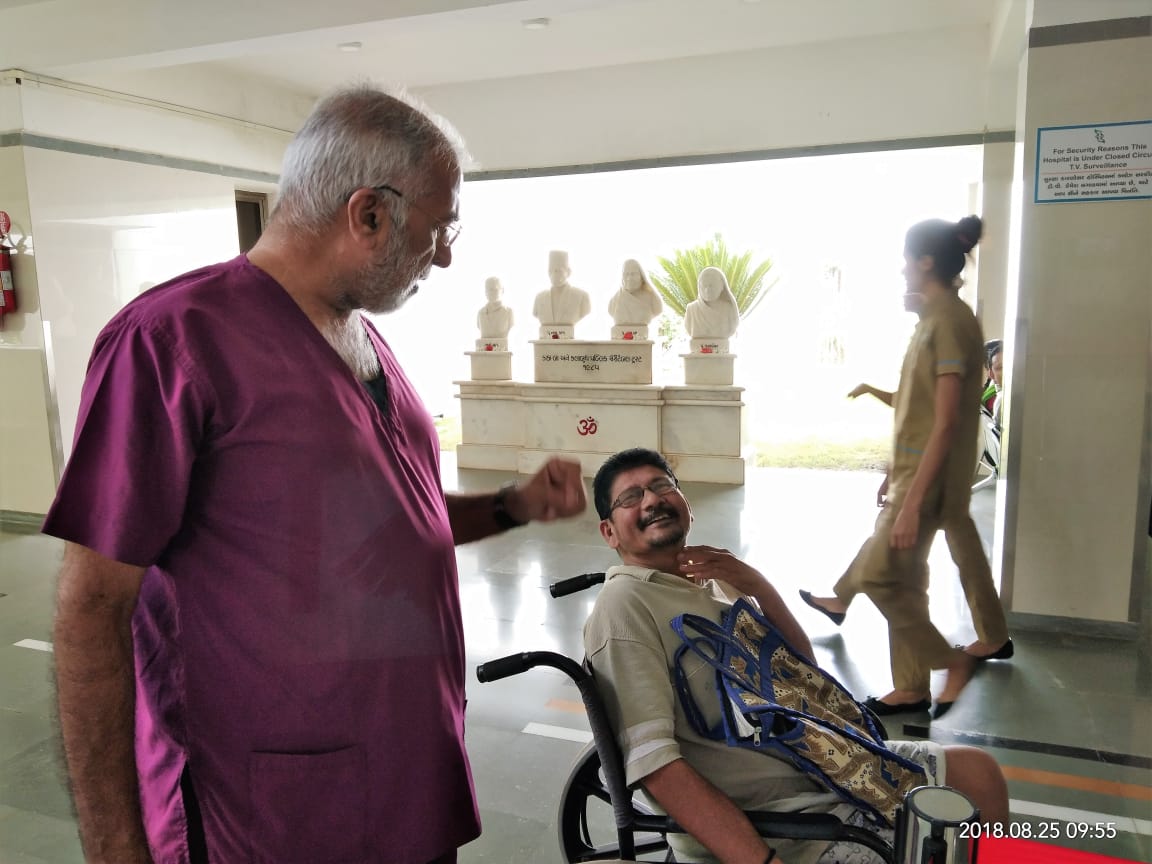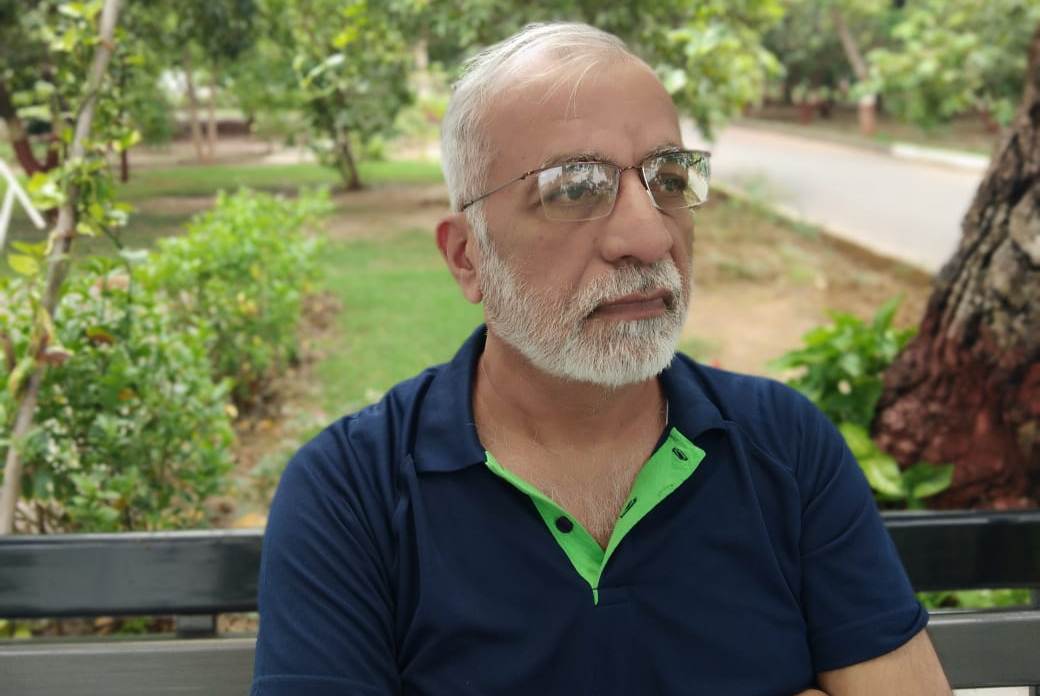The ability to perform Cardiopulmonary Resuscitation (CPR) and administer basic first aid can be the difference between life and death in an emergency situation. In response to the escalating cases of heart attacks and cardiac arrests, Cadila Pharmaceuticals, in collaboration with the Indian Red Cross Society, Gujarat State branch, has embarked on a commendable endeavour. Through a CPR and First Aid training program, the pharmaceutical major aims to equip 50,000 students in Ahmedabad and Mehsana with life-saving skills.
The initiative transcends individual empowerment, as equipping young people with CPR and first aid knowledge holds profound implications for community well-being. Early intervention during emergencies, particularly cardiac arrest, significantly increases the chances of survival. Imagine a student confidently administering CPR while waiting for medical help to arrive, potentially buying precious minutes that could save a life. This initiative has the potential to create a ripple effect, fostering a culture of safety and preparedness within communities.
At the helm of this transformative initiative is Dr. Bharat Champaneria, Superintendent, Chief Coordinator, and CSR Head at Indrashil Kaka-Ba and Kala Budh Public Charitable Trust, the CSR arm of Cadila Pharmaceuticals. With unwavering dedication to community welfare, Dr. Champaneria brings a wealth of experience to the cause. In an exclusive interview with TheCSRUniverse, he discusses the program's goals, the challenges it faces, and its future plans. He also emphasizes the importance of integrating these vital skills into the national curriculum, paving the way for a healthier and safer future where young minds are equipped to not only save lives but also contribute to a culture of preparedness within their communities.
Scroll down to read the full interview.
Q&A
Q. This CPR and First Aid training program is a commendable initiative. What inspired Cadila Pharmaceuticals to prioritise equipping students with these life-saving skills, and what is the overarching goal you aim to achieve through this program?
A. Thank you! Cadila Pharmaceuticals believes in the philosophy of “The Care Continuous”. Our Founder Chairman Late Shri Indravadan Ambalal Modi strongly believed that the main focus of the healthcare sector should be preventive care and affordable medicines. As a responsible pharma company, we endeavour to empower local communities through our CSR initiatives at the grassroots level. The idea of imparting CPR training to youth is part of our efforts to enhance preventive care. Also, youth are responsible for shaping the future of the country. If they are equipped with this skill, they will be able to save countless lives.
Q. Given the potential impact of this program on saving lives, what are the biggest challenges Cadila Pharmaceuticals anticipates in scaling this life-saving initiative to include CPR and First Aid training in the curriculum of all schools across India?
A. Given that today’s youth is more open to dealing with difficult situations, it is not difficult to find acceptance in terms of scaling the life-saving initiative. However, the orientation of institutions to this cause and their continuous support to organise such programs at regular intervals will play a vital role in making this program more impactful and result-oriented.
Cadila Pharmaceuticals has taken up the responsibility to be vigilant and impart the training to youth. We aim to reach out to other organisations and other stakeholders to conduct similar training programs in their spheres of work and gradually scale it up. Cadila Pharmaceuticals is committed to helping in knowledge and capacity-building where possible.
Q. Besides CPR and First Aid, what holistic approaches will Cadila take to address student well-being, including mental health, substance abuse prevention, healthy lifestyle promotion, and broader school safety measures?
 A. Over 10 crore individuals in India are grappling with substance addiction, with a staggering number of cannabis, opioids, and inhaler users, according to the Union Ministry of Social Justice and Empowerment. The 70% rise in narcotics consumption over the past decade, coupled with the unsettling statistic that 13% of drug abuse victims are below the age of 20, underscores the urgent need for intervention.
A. Over 10 crore individuals in India are grappling with substance addiction, with a staggering number of cannabis, opioids, and inhaler users, according to the Union Ministry of Social Justice and Empowerment. The 70% rise in narcotics consumption over the past decade, coupled with the unsettling statistic that 13% of drug abuse victims are below the age of 20, underscores the urgent need for intervention.
Recognizing the gravity of the situation, Cadila Pharmaceuticals’ CSR arm, Indrashil Kaka-Ba and Kala Budh Public Charitable Trust, has joined forces with Brahmkumaris to address the root causes of substance abuse and facilitate the journey to recovery. We have also roped in psychologists, psychiatrists, opinion leaders and NGOs inclined to this cause. Our collaborative efforts extend to conducting de-addiction sessions in schools and colleges, aiming to raise awareness about the destructive impact of drugs on individuals and society as a whole.
In our pursuit of curbing substance addiction, we prioritise preventive measures, understanding that 'precaution is better than cure.' By spiritually awakening the youth, we aspire to instil a sense of purpose, resilience and self-awareness that serves as a powerful deterrent against falling prey to the clutches of addiction. Our mission is not only to educate but also to empower individuals to make informed choices and resist the pressures that may lead them down the perilous path of substance abuse.
The pervasive issue of substance abuse among the adolescent population is deeply rooted in poor socioeconomic conditions, such as unemployment, violence, and sexual abuse. Through our initiatives, we endeavour to break the cycle of despair and provide a beacon of hope for those who may feel trapped by their circumstances. By addressing the multifaceted challenges associated with substance addiction, we aim to contribute to a healthier and more resilient society. Together, with the support of educational institutions, communities, and individuals, we believe that we can make a lasting impact and create a brighter future for the youth of India.
Q. Can you elaborate on the 'career orientation and guidance' offered through Indrashil University? How does this component integrate with the life-saving skills training?
A. University education and lifesaving skills training can work hand in hand with the growth of students. By combining the knowledge, skills and qualities gained from both areas of learning, students can become well-rounded individuals who are not only successful in their careers but also equipped to handle emergencies and make a positive impact on the world. A student who has been trained in lifesaving skills may be more confident in taking on leadership roles, working collaboratively with others and demonstrating empathy towards others
At Indrashil University we are focused on 360 degree growth of students. Any student joining education is looking for either placement, entrepreneurial positions, research or higher education. We, at Indrashil University, understand their needs and based on the mentoring of the students before and after joining us, help them to shape their careers in the area of their choice. Having 100 % placement among interested students is something we have achieved. Our state-of-the-art research facility is unique among private universities in the region and it helps students as well as faculties to pursue their research dreams on campus. The Atal Incubation Centre on campus along with the Implementation of the SSIP (Students Startup and Innovation Policy) of the state helps students to commercialise their innovative ideas. University faculties and mentors play key roles here to nurture their ideas, convert them to prototypes and then commercialise them.
Being a Life Science university, we have a major focus on promoting research in this domain, which by default creates the need to learn such lifesaving skills, as it is the first level of impact on society.
Q. Considering the program ends in March 2024, how will Cadila ensure its long-term implementation and maintenance, and how will you measure its success beyond the target of training 50,000 students?
A. Though this phase of implementation of the program is ending in March 2024, it is not over, it is a continuous process. We, along with Indrashil University and other social organisations, will continue to bring awareness and training beyond it. At the university, we are trying to build some skill courses on health and hygiene, which will help inculcate such skills in youth and help the community. Our first target is to reach 50,000 students, but it’s not going to end there for sure. Through NSS volunteers, we will reach out to the community and put our best efforts into fulfilling the vision of our founders. The success measures of the program will include the number of incidents addressed, training retention by participants, and awareness level as well as impact on the community as a whole.
Q. Will Cadila explore developing an online component of the program for wider reach?
A. It is a good idea and we will explore the same through Indrashil University. But again online videos/activities will only be supplementary to the cause and real-time exercise/practice is a must since practical exposure to such training has more value than only online.
Q. Given the urgent demand for CPR and First Aid training in Indian schools, what advice would Cadila Pharmaceuticals give to government agencies, educational institutions, and NGOs to collectively integrate these vital skills into the national education curriculum?
A. We are witnessing a worrying rise in cases of heart attacks. Many youngsters are also falling prey to heart attacks, which experts attribute to lifestyle and improper diet. Imparting CPR training to school students in the age of 12-14 years and equipping them with the skills to administer CPR and First Aid, would help in avoiding loss of lives. The training would also help in enhancing their EQ, enabling them to focus on a difficult situation with a calm mind. Cadila Pharmaceuticals is working closely with government agencies and other organisations to impart the training. We feel there is a lot to do in this space. The country will benefit from Mandatory Curriculum inclusion, standardised training protocols in consultation with medical professionals, teacher training programs and community engagement wherein community participation can be encouraged by involving local healthcare providers.
Q. Thinking beyond this program, what are Cadila Pharmaceuticals' broader long-term plans for contributing to healthcare education and community empowerment initiatives in India?
A. Healthcare is at the very core of the CSR program of Cadila Pharmaceuticals. Through our CSR arm, Kaka-Ba Hospital at Hansot, we are organising medical camps and awareness sessions in 21 villages across India that have been adopted by Cadila Pharmaceuticals for CSR. The patients are consulted/treated in these camps and those in need of further treatment/surgeries are treated /operated at Kaka-Ba Hospital for free.
Additionally, we have collaborated with SEWA (Self Employed Women’s Association), which works at the grassroots level for the effective implementation of Cadila CSR programs and women empowerment. We have established SEWA Shakti Kendras in ten villages, which work closely with the communities and educate them on anaemia, malnourishment, menstrual hygiene, general health, government schemes, livelihood and other activities as per the needs of the respective communities.





 A. Over 10 crore individuals in India are grappling with substance addiction, with a staggering number of cannabis, opioids, and inhaler users, according to the Union Ministry of Social Justice and Empowerment. The 70% rise in narcotics consumption over the past decade, coupled with the unsettling statistic that 13% of drug abuse victims are below the age of 20, underscores the urgent need for intervention.
A. Over 10 crore individuals in India are grappling with substance addiction, with a staggering number of cannabis, opioids, and inhaler users, according to the Union Ministry of Social Justice and Empowerment. The 70% rise in narcotics consumption over the past decade, coupled with the unsettling statistic that 13% of drug abuse victims are below the age of 20, underscores the urgent need for intervention.












.jpg)



